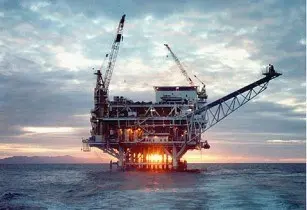Greenfield gas projects off the east coast of Africa have been fuelling services demand, writes Karel Van Campenhout – ABS regional vice president for Africa and senior vice president for ABS Europe
The International Monetary Fund (IMF) has predicted that Africa’s economic growth rates will surpass Asia’s over the next five years, with seven African nations expected to be in the top 10 fastest-growing economies. The upstream oil and gas industry and vessels trade to African ports have been fuelling this increase.
Intensifying exploration offshore East Africa has led to a need for domestic infrastructure and expanded services capabilities to support full-scale production and LNG export. Local constraints have not deterred a number of multinational companies such as independent US firm Anadarko Petroleum, Italy’s Eni SpA, and Norway’s Statoil from showing interest in developing largely untapped reservoirs.
Recent discoveries offshore Mozambique and Tanzania have proven the region’s potential, with reserves estimated at well over 100 trillion cubic feet of gas in place.
In emerging markets like East Africa, class societies are an integral part of the verification process to establish acceptance criteria for the design integrity of vessels, risk mitigation and offshore safety.
As a non-governmental organisation working closely with industry and regulators, the American Bureau of Shipping (ABS) provides and maintains the technical standards for the construction and maintenance of offshore vessels and facilities by validating through routine surveys that these structures are in accordance with certain rules and guides.
In West Africa, 65 per cent of drilling units operating in the region are classed with ABS. The organisation has the largest market share for the number of floating production units under ABS class in the region. East Africa also will require an influx of classification and technology services to lay the foundation for multibillion dollar LNG projects.
Expanding offshore network
ABS is joining the move eastward with plans to expand its coastal network by opening operating bases in Pemba, Mozambique, and Mombasa, Kenya, in late 2013.
Major gas discoveries since 2009 in the Rovuma Basin offshore northern Mozambique have driven the country’s reserves base higher, likely positioning it to become a significant gas producer in the medium term. Further exploration of the Rovuma Basin – ranked as one of the largest gas projects in the world – is expected to attract substantial foreign investment in the coming years.
Mozambique has several ports, including Maputo, Beira, Nacala and Quelimane, which offer an economic supply corridor to neighbouring landlocked countries. Cargo handled in the port of Maputo is estimated to total 14 million metric tonnes this year, up from 4 million metric tonnes in 2003 and 11.8 million metric tonnes in 2011.
Mozambique recently inaugurated the country’s first oil port in the city of Pemba. In the last year, Anadarko has built additional infrastructure at Pemba, now the central location for embarkation to offshore units operating in the area, where technical support for large-scale projects, including a proposed LNG plant, will be needed. ABS has identified this port city as its primary location in East Africa, where it will offer services to support offshore and marine operations.
Although Kenya has a modest upstream industry today, the government is encouraging foreign investment in petroleum exploration. The port of Mombasa traditionally has been the major trade gateway to East and Central Africa, handling some 20 million metric tons of cargo in 2011.
Construction is under way on a megaport at Lamu in northern Kenya, East Africa’s largest infrastructure project, including improvements to rail and road networks. To meet future demand for more services in the region, ABS is finalising plans to establish an office in Mombasa with closer access to other coastal port cities.
Looking ahead
With East Africa a major growth area for the offshore oil and gas industry, ABS’ long-term focus will be to improve service delivery while these massive investments are directed into ports and infrastructure along the coast.
As development continues to accelerate, the organisation will work with industry and regulators to develop technical standards through established rules and guides that promote the security of life, vessel and the natural environment.








